Letter: Response to the Employment Equity Act Review Task Force
April 27, 2022
Employment Equity Act Review Task Force
C/O Employment Equity Act Review Secretariat
(mailstop # 911)
ESDC, 140 Promenade du Portage, Phase IV
Gatineau, QC, K1A 0J9
Email: EDSC.LEE-EEA.ESDC@labour-travail.gc.ca
Dear Members of the Employment Equity Act Review Task Force,
We are writing on behalf of the Lesbian Gay Bisexual Alliance Canada. Our membership is comprised of lesbian, gay, and bisexual Canadians. At present, LGB Alliance Canada is the only Canadian organization advocating for the rights of same-sex attracted people. We are also part of a growing international movement, with branches in over a dozen countries. Our organization campaigns for the rights of LGB people in Canada to live and be recognized as full members of society, on the basis of our same-sex attraction. As such, we have a vested interest in the potential inclusion of LGB people as an equity group within the Employment Equity Act. The potential for the Act to adopt Treasury Board recommendations made in 2018 to default to gender, rather than sex, in the collection of personal information is harmful to LGB people. While we welcome the potential to include LGB people as a distinct equity group, ensuring accountability, compliance, and enforcement of equality for LGB people in the workplace will require that biological sex continue to be collected as a priority, and sexual orientation information be collected with reference to biological sex. Without this information, it will be impossible to know how many same-sex attracted people are hired and how well they are treated in federally regulated employment contexts. The task force seeks to conduct research on access to employment for marginalized groups. However, for us, as LGB same-sex attracted people, conflating sex with gender invalidates any findings of the research. In our experience, both biological sex and sexual orientation significantly impact access to equitable employment, and this is independent of one’s gender identity (or lack of gender identity). In EEA research, conflating sex with gender identity collapses meaningfully disparate groups into one, rendering the data unintelligible.
Ignoring sex as a category in favour of gender identity will corrupt the data. It will eliminate the ability of the data to detect the unique barriers females face in the workplace (independent of their gender identity), as well as the unique challenges homosexuals face, particularly female homosexuals.
Females, including trans men, continue to face sexism and have unique occupational health needs. These needs persist regardless of someone’s gender identity.
Importantly, feminine men and masculine women may still face employment barriers, independently of their sexual orientation, for the sole reason that these Canadians transgress stereotypes for their respective sexes. Therefore, to ensure equity in the workplace for sex non-conforming Canadians, it would be necessary for the EEA to account for Canadians who are sex non-conforming, be it in dress, behaviour, or body language. But this question must be posed in addition to inquiries about biological sex and sexual orientation, and not collapsed with either of these categories.
Separating gender identity from sex and sexual orientation is particularly important given our current context. While you may have been led to believe that LGB people have achieved full legal rights in Canada, our recent experience tells a different story. Today in Canada, we face a new homophobia because we uphold that biological sex is the basis of our attraction. Many organizations that claim to represent us now insist that gender identity is more important than biological sex. The concept of ‘gender identity’ comes from a new belief system which says that every person has an internal sense of a gendered essence, making them a man, a woman, neither, both, or even something else entirely. This belief system dictates that everyone’s internal feeling overrides and negates their biological sex. This belief system is leading to consequences, such as redefining terms like ‘lesbian’ and ‘gay’ to include heterosexual people and kicking lesbians and gays out of our own organizations for asserting our exclusive same-sex attraction. This new homophobia has particularly impacted lesbians who, as women, have historically had less power to maintain sexual and other boundaries. LGB people in Canada struggled for decades to be recognized as same-sex attracted people and to hold the same rights in society as our heterosexual brothers and sisters. Our organization fights to uphold these hard-won rights because gender identity beliefs, as they are currently being legislated, are eroding our human rights. This includes: our right to assemble, our right to self-definition, our right to have our own spaces, and our right to be represented and recognized in Canadian laws and institutions, and our right to employment equity.
Protecting the rights of people who hold beliefs in gender identity or who identify as non-binary, transgender, queer, or any other gender identity is also important. This can be done under a separate category, in addition to but not instead of sex. An additional category can protect individuals from discrimination on the basis of gender identity, or more precisely, gender expression (e.g. manner of dress, behaviour, name, or other personal forms of expression) that does not correspond with that typically associated with their sex. However, if data is not collected on sex and sexual orientation as a priority, the Government of Canada and employers regulated under the EEA will not be able to accurately assess to what degree lesbian, gay, and bisexual Canadians are included in employment opportunities and to what degree these groups experience discrimination or disadvantage in employment tied to their sex and sexual orientation.
Sincerely,
LGB Alliance Canada

